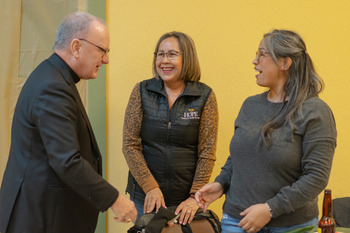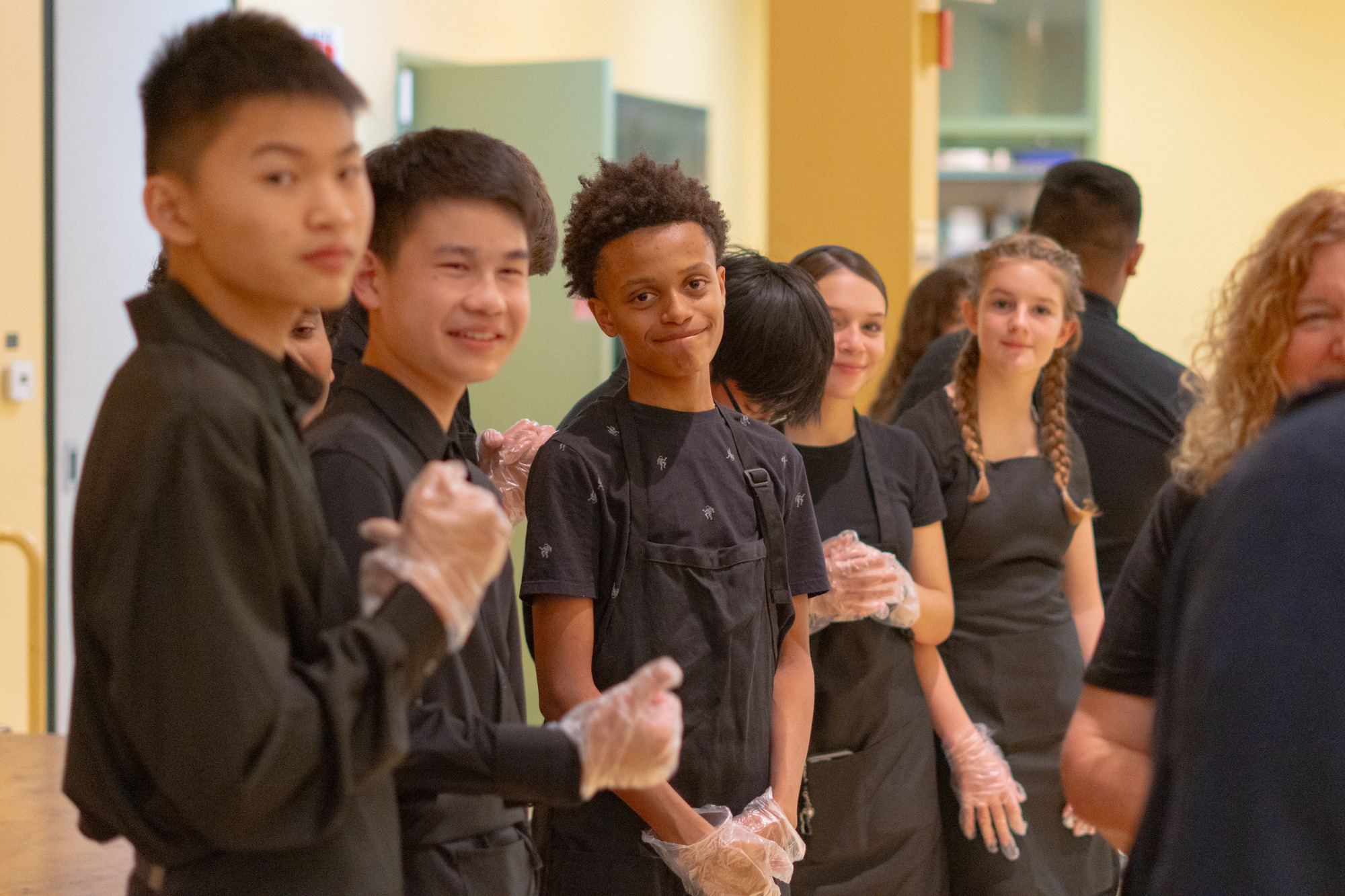Spotlight on Justice & Youth
-

The many aspects of Justice
Justice within faith is deeper than activism, says Kiona Medina, coordinator of Life & Social Justice Ministry for the Diocese of Oakland. Her vision for the ministry is one of concentric circles, which include both preventative and responsive initiatives within society. Both are vital. Preventative justice initiatives strengthen people and communities in ways that lessen the need for responsive measures, such as feeding the hungry and housing the unsheltered.
Wellness initiatives are front and center in Medina’s preventative plans. Donations cover stipends to lay professionals who share their expertise on topics such as nutrition, self-care, safe relationships, Catholic teaching on respect for life consciousness and Theology of the Body.
Andrea Walle is receiving training in how to teach Theology of the Body, funded by the diocese, so that she can give seminars on healthy relationships to young people. Theology of the Body is rooted in the work of St. John Paul II, teaching that the body has a theological purpose as well as a biological one. Humans are created in the image of God, and the body can reveal the meaning of life. It emphasizes love and how to express it in relationships. “We are building a ministry through her,” Medina said.
Medina also aspires to sponsor interested parishioners to be trained by the Association of Catholic Mental Health Ministers so they can become mental health ministers within their own communities.
Responsive initiatives range from small actions at the parish level to large diocesan programs. Parish initiatives respond to immediate local needs. The food pantry at St. Joachim in Hayward needs non-perishable foods because 70 percent of their clients are homeless. Parishioners at St. Charles Borromeo in Livermore collect backpacks and school supplies for children. Communities at St. Mary’s in Walnut Creek and Sacred Heart in Oakland have created garden spaces that help raise awareness for environmental justice.
Medina is also coordinating with local Catholic charitable organizations to assist a Pakistani Catholic family seeking asylum from religious persecution. They have been able to cover filing fees and assist with paperwork for the family of five – two adults and three teens – as well as helping them find appropriate housing and other necessities.
In immigration forums, attorneys will gather to offer free consultations, education and support for people who need immigration assistance.
Chaplains visit six local jails, offering prayer, spiritual ministry and Mass. “When an inmate receives accompaniment, spiritual care and a human connection to check in and journey with them, that brings out a restorative justice that few others are providing,” Medina said, noting that the diocese’s contract with the jails expires this year and funding would help ensure its renewal.
Through generosity to the Bishop’s Ministries Appeal, Medina seeks to expand the ministry to include more programs on skill building or social work to assist inmates with re-entry into society after incarceration.Investing in young leaders
Pope Francis talks about the resurrected Jesus as a sign of the Church remaining young in the sense of engaging in an ever-changing world. “Anyone serving in youth ministry gets a front row seat to that,” said Joseph Nufable, diocesan coordinator for Youth Ministry & RCIA (Rite of Christian Initiation for Adults). Youth ministers are missionary disciples handing on faith to a new generation. It’s a unique challenge in a global digital culture and with youth who grew up in a global pandemic. “There is a deep need for human connection, especially for young people in a digital age. Receiving that from people who care about them is important,” Nufable said. Youth ministers are meeting emotional and spiritual needs.
Youth ministers are missionary disciples handing on faith to a new generation. It’s a unique challenge in a global digital culture and with youth who grew up in a global pandemic. “There is a deep need for human connection, especially for young people in a digital age. Receiving that from people who care about them is important,” Nufable said. Youth ministers are meeting emotional and spiritual needs.
One of the topics from the recent synod was how to engage the youth as leaders in the present. Nufable and youth ministers around the diocese are seeking to move in the direction of empowering the youth today.
Nufable is focusing on how to help parishes shift to meet the needs of teens. He points to research that suggests relational rather than institutional authority was key to preserving faith in Millennials and the older half of Gen Z who had, on average, five relationships with mentoring adults.
Nufable is also encouraging parishes to focus on creating and maintaining effective middle school ministries. “Keep those programs strong,” he said. “Put your best people there. Gen Z and Gen Alpha have a sense of identity earlier in life.”
The diocese is investing in young leaders. Nufable hosted a youth leadership summit in 2021 and again in the summer of 2024. About 60 young people participated in spiritual formation and practical training to deepen their identity as a disciple and take the opportunity for ongoing conversion. The spiritual practices included devotions, the sacrament of penance and adoration. The practical component included training in small group leadership and how to share one’s Catholic witness.
Participants were glad to encounter like-minded youth leaders from other parishes and the chance to learn from each other’s experiences. Since the summit, they have used group chats to collaborate and plan events between parishes.
The youth leadership summit for summer 2025 will be open to all teens.
In the fall of 2025, Nufable hopes to host a convocation for youth ministers, bringing anyone who serves young people together for a day of shared formation, prayer and networking. “We want to thank them for what they do and bring more hope that the Church will exist for years to come,” Nufable said.
